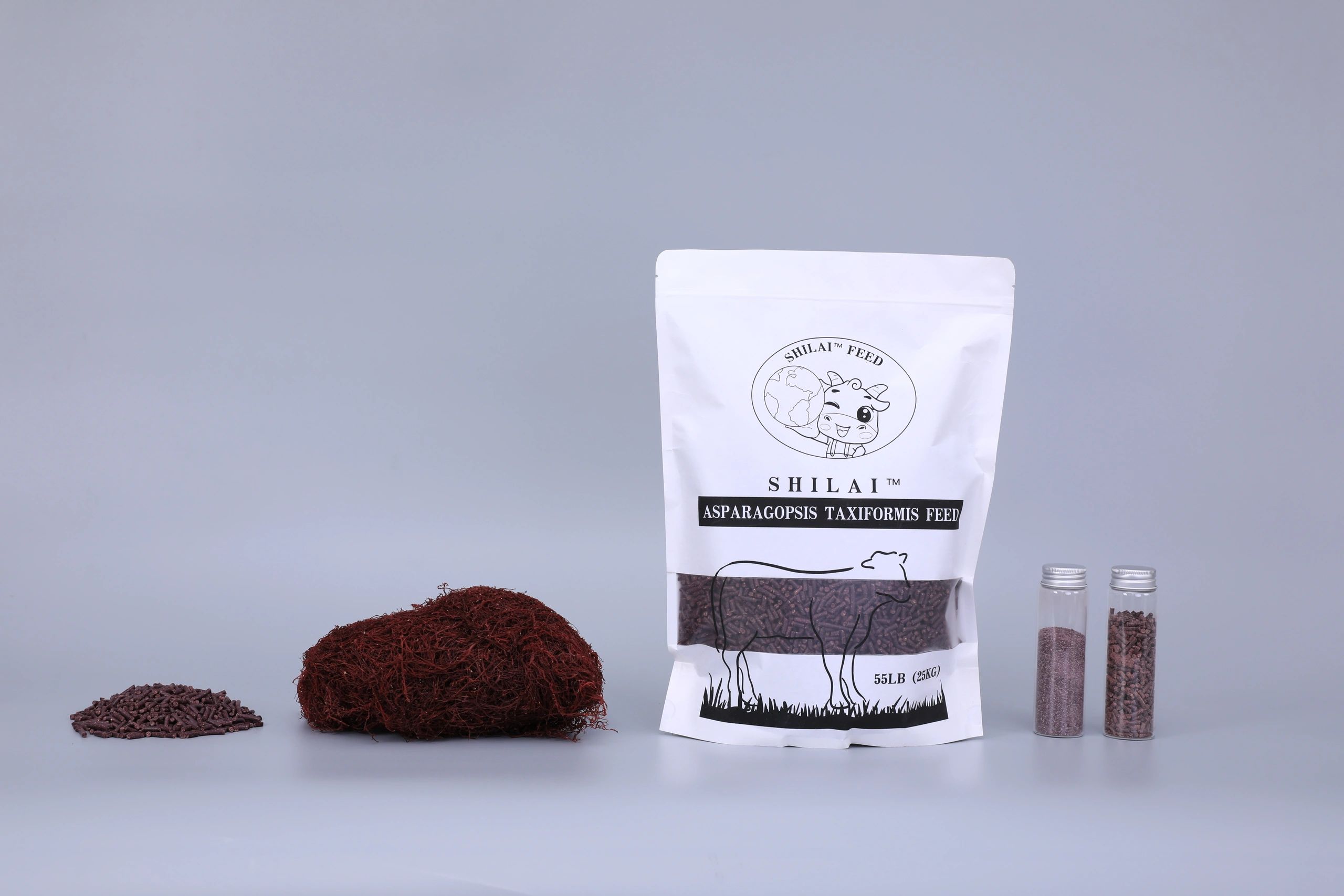The agricultural industry is a key emitter of greenhouse gases, largely due to emissions from farmed animals.
Methane’s warming potency exceeds that of carbon dioxide, so cutting methane emissions delivers outsized climate benefits.
Asparagopsis taxiformis, an oceanic red alga, shows potential as an effective strategy to reduce methane emissions from animals.
This seaweed contains a compound that inhibits methane formation in the rumen, thereby lowering animals’ overall methane output.
Mixing Asparagopsis taxiformis into diets has shown experimental success, suggesting an actionable strategy to shrink the carbon footprint of animal farming.
- In addition to methane cuts, Asparagopsis taxiformis brings several beneficial side effects for farm operations.
- Enhanced overall livestock health
- Potential to create a sustainable and circular economy in the agricultural sector
While more research and development remain necessary to confirm long-term impacts, Asparagopsis taxiformis represents a highly promising sustainable mitigation tool.
Realizing the Opportunity of Asparagopsis taxiformis Powder in Animal Nutrition
The powder and extract forms of Asparagopsis taxiformis could deliver new nutritional and environmental value in feeds.
The species supplies both nutritional elements and bioactives that contribute to enhanced livestock performance.
Blending A. taxiformis powder into rations has produced measurable methane cuts in research and supplies supportive nutrients.
Deeper investigation is necessary to establish best practices for dosing, feed processing, and long-term animal health outcomes.
How Asparagopsis taxiformis Could Reshape Sustainable Animal Agriculture
The red alga is earning traction as a tool to mitigate the ecological harms linked to conventional livestock production.
Adoption of the algae in feed could enable measurable reductions in methane and a smaller ecological footprint for farms.
Beyond emissions, studies indicate Asparagopsis may also improve animal health and productivity metrics in some contexts.
More work to verify long-term safety and logistical viability is necessary, though early findings look promising.
Asparagopsis Feed Supplements for Methane Mitigation
Asparagopsis species have emerged as a promising avenue for lowering methane emissions from ruminant animals.
Active substances in the algae modify rumen microbial dynamics, thereby reducing methane production.
- Several studies have documented considerable methane reductions in ruminants receiving Asparagopsis in feed.
- The strategy of adding Asparagopsis to feed aligns with sustainable agricultural practices for emissions reduction.
- Industry participants are exploring pathways to implement Asparagopsis into commercial feeding systems.
Asparagopsis: A Transformative Feed Innovation for Livestock Production
From ocean science to farm practice, Asparagopsis taxiformis is an emerging contender for sustainable methane mitigation.
- Experimental feeding of Asparagopsis yielded large methane reductions, suggesting important environmental gains.
- This breakthrough could help reconcile food production with sustainability by lowering emissions while supporting nutrition needs.

As climate strategies evolve, Asparagopsis emerges as a distinctive, implementable solution for cutting livestock methane.
Advancing Optimization of Methane-Cut Feeds Based on Asparagopsis taxiformis
Efforts aim to refine processing techniques and dosing protocols to ensure A. taxiformis performs reliably as a feed additive.
The Science Behind Asparagopsis taxiformis's Methane-Lowering Effects
The core mechanism involves active molecules in the seaweed that target and diminish methanogen activity, leading to lower methane.
The compound bromoform within the seaweed is a principal inhibitory agent against methanogenesis, and researchers are studying its dynamics and safety.
Adding Asparagopsis into Rations to Support Sustainable Livestock Systems
Its dual role as a nutrient source and methane inhibitor supports its use as a component in sustainable feed blends.
Including the seaweed in formulations can supply proteins and trace elements, support digestive health, and contribute antimicrobial effects.
Harnessing Asparagopsis taxiformis for a Cleaner Food System
Asparagopsis taxiformis offers a natural pathway to mitigate climate impacts associated with livestock and contribute to sustainable food systems.
- Additionally, Asparagopsis contains vitamins and compounds that enrich feed nutritional content.
- Researchers and practitioners are investigating diverse applications of the species across farming and food industries.
Mainstreaming Asparagopsis use has the potential to achieve measurable reductions in the environmental effects of livestock agriculture.
Benefits of Asparagopsis Feed Additive on Animal Health and Productivity
The species is emerging as a feed supplement that can deliver environmental benefits plus gains in animal welfare and productivity.
Experimental results show enhanced nutrient utilization and feed conversion in animals fed Asparagopsis, aiding growth and condition.
Asparagopsis contains compounds with antioxidant and immune-modulating potential that may enhance resilience and reduce disease incidence.
The momentum behind sustainable livestock practices enhances the appeal of Asparagopsis as studies and commercialization advance.
Building Methane-Cut Feeds with Asparagopsis for a Lower Carbon Future
The industry’s need to reduce its environmental impact makes Asparagopsis a relevant intervention to cut methane from ruminants.
- Scientists believe the seaweed contains compounds that disrupt methanogenesis in the rumen, thereby lowering methane production.
- Controlled experiments have shown that feeding Asparagopsis can yield notable declines in methane production.
The strategy presents both a sustainable feed alternative and a potential lever to transform agricultural emissions trajectories.